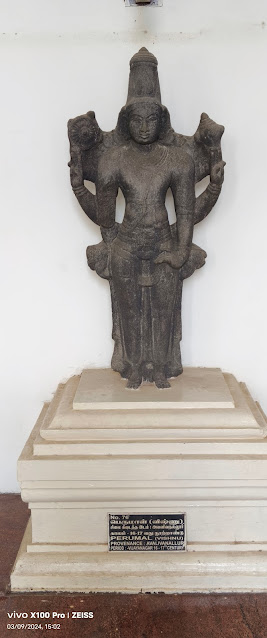॥ ॐ नमो भगवते वासुदेवाय ॥
कृष्ण त्वदीयपदपङ्कजपञ्जरान्तः अद्यैव मे विशतु मानसराजहंसः ।
प्राणप्रयाणसमये कफवातपित्तैः कण्ठावरोधनविधौ स्मरणं कुतस्ते ॥ ७॥
Translation: Oh Kṛṣṇa, let the royal swan of my mind rest just now in the cage of Your lotus feet! For, at the moment of life ebbing away from my body, with my voice choked with the three humours of phlegm, air and bile ( i.e. diseased), how shall I remember You!?
Notes: Now Kulaśekhara realises it is mere rodomontade (bluster) to assert to the Lord that he shall think of the Lord's lotus feet at the moment of his death. His thoughts would be severely hampered by a state of ill-health that precedes most cases of death. So the devotee now prays to the Lord that his mind should be caged right now in the Lord's lotus feet! This is indeed the wisest thing one can do. Bhagavān describes, in the eighth chapter of the ŚrīmadBhagavadgītā, the two paths taken by the soul - one of liberation and the other of rebirth, based on what the Jīva thinks of at his moment of death. This is in answer to the specific question of Arjuna about how to remember the Lord at the moment of death. Then the Lord says this:
नैते सृती पार्थ जानन्योगी मुह्यति कश्चन । तस्मात्सर्वेषु कालेषु योगयुक्तो भवार्जुन ॥ ८-२७॥
Translation: Oh, Arjuna, hearing of these two paths of the afterlife one of which will be taken based on what the Yogī may think of at the moment of his death, the Yogi is not confused. Instead, he engages in Yoga constantly, because death can come at any moment!
